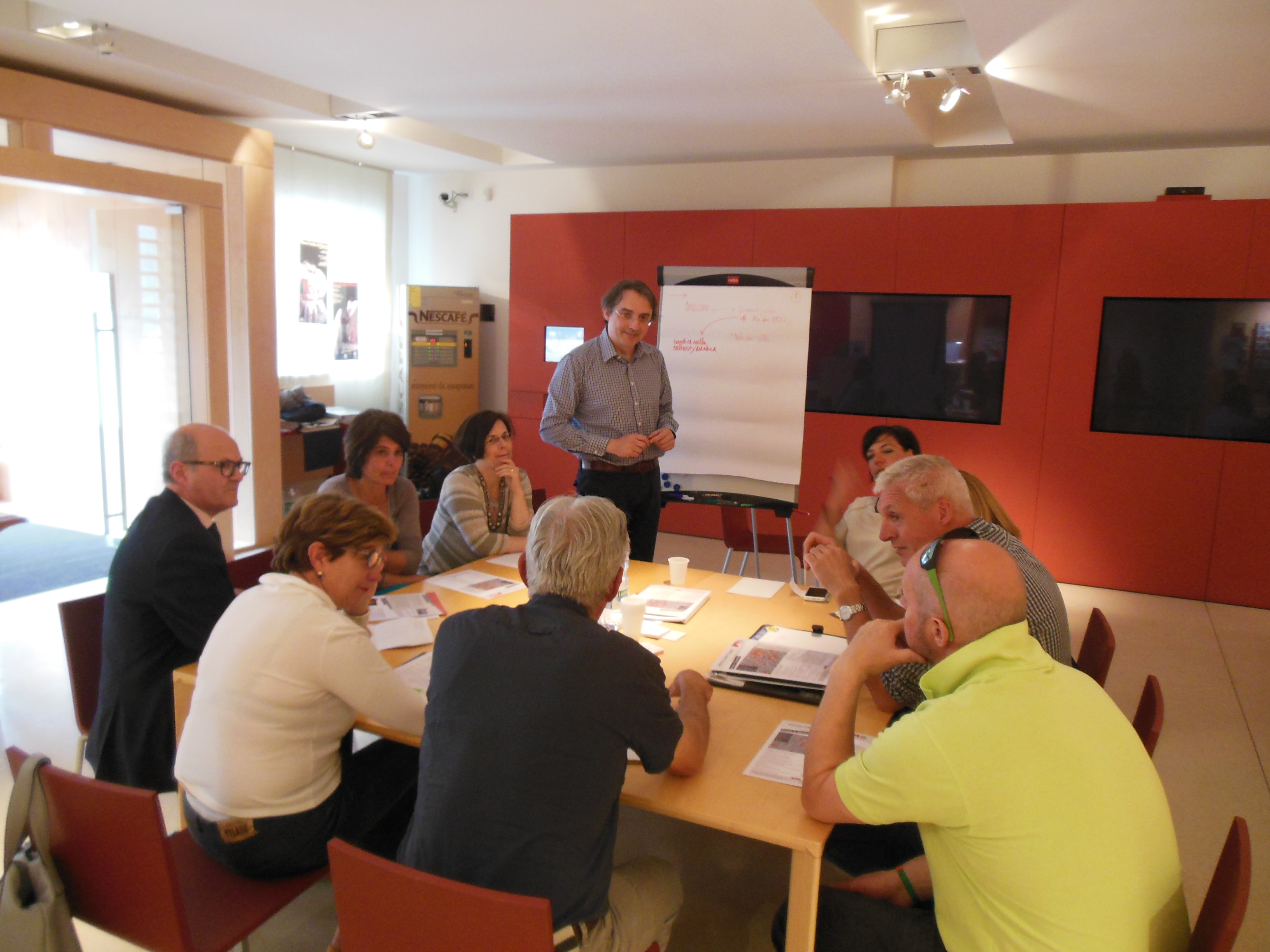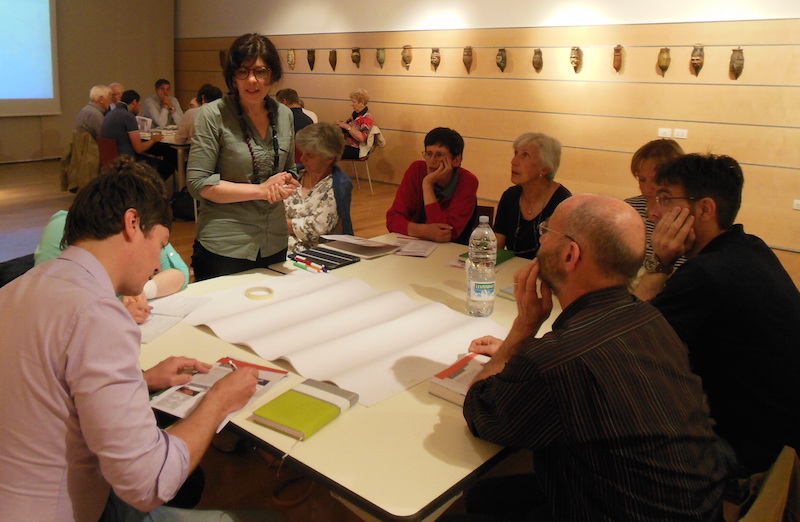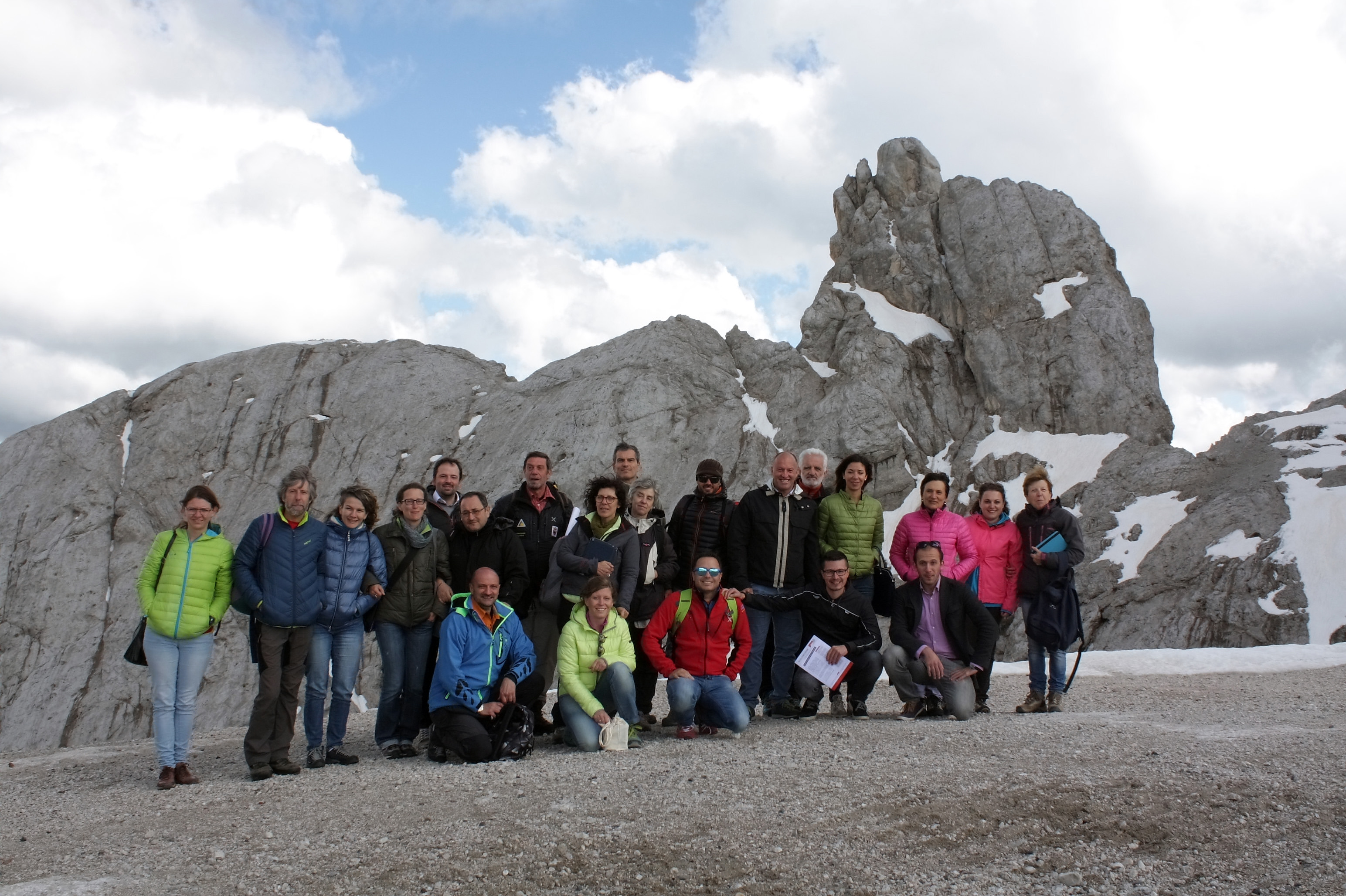



The strategy #Dolomites2040 is a participatory process that was put in place by the UNESCO Dolomites Foundation in 2015. The process involved park authorities, local administrations, tourist industry consortia, environmental associations, hoteliers, farmers and professional associations with the aim of developing a set of recommendations for the management strategy of the World Heritage property of the Dolomites on four macro-themes: tourism, socio-economic development, active conservation and relationship-building.
The participatory process was carried out through a series of 11 meetings with a small group of people using the World Café method; during the meetings participants discussed key questions looking at how they would like to see the Dolomites in 2040 looking at ways to guarantee conservation as well as to support the livelihood of people living inside and nearby the property.
These information, proposals and worries have been key to the 2015 creation of the Overall Management Strategy and the Tourism Strategy, and the establishment of short-, medium- and long-term management and conservation directions tackling both the protection of the Outstanding Universal Value as well as matters of local importance.
A strong overarching institutional framework, which through the UNESCO Dolomites Foundation (FD4U) is empowered to act locally and regionally in the engagement of local communities, governments and other local actors. The Foundation consists of a number of institutional organisations which promote dialogue between the territorial authorities (Board of Directors), scientific objectives (Scientific Committee), socio-economic and environmental issues (Board of Supporters) and the interests of the local authorities (municipalities and communities).
During these cafés and meetings, participants from local communities, institutions and other local actors had a direct chance to share proposals and ideas as well as doubts and worries they had concerning the long-term conservation of the site, the economic development of the area and the livelihood of communities.
The process highlighted the importance of fostering local participation and cooperation for the improved management of the Dolomites. The engagement of all stakeholder is a constant investment that needs to be done in order to enable the effective management and conservation of the area together with the safeguarding of local and traditional ways of living and interacting with the natural resources.
The process has allowed the management institutions to better identify strategies to tackle points of criticism from local actor and to create means for social and economic development of local communities in harmony with nature.